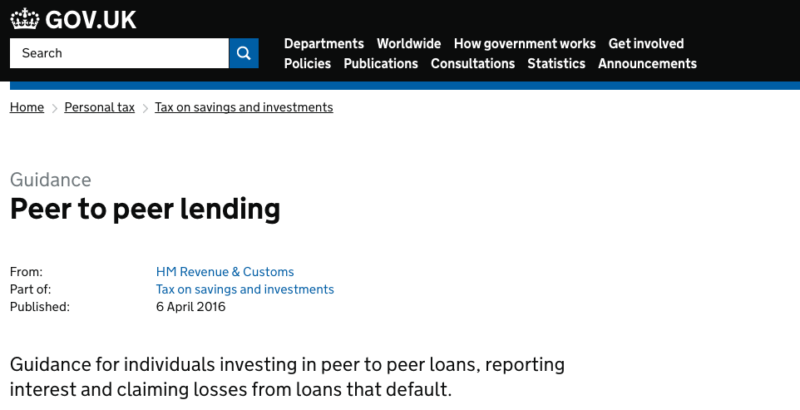
If you’ve been investing in P2P loan platforms such as Mintos or Twino, you will need to know how the profits you make will be taxed.
This is a general rule for all your investments. Always consider the tax impact of any investment you do. Different asset classes and investments can be taxed in different ways, so you need to look at that as it will affect your net return, sometimes in a drastic way.
The UK tax authority has issued a good guide that should be applicable to many other countries in the EU too, although it’s always important to check with your country’s authorities for specific guidance.
The advantage of peer to peer loans for lenders is that they can generate higher interest rates that exceed the interest that could be earned from banks and other financial institutions.
P2P loan platforms also give borrowers an alternative to the finance which they may get from standard financial intermediaries.
Lenders place their money with a peer to peer platform which is then lent to lots of different borrowers as many small loans. Each borrower borrows small amounts from many different lenders to make up the full loan they need. The platform will collect the repayments of interest and capital from each borrower and pass them to the lenders.
See also: How P2P lending works
The interest received from peer to peer loans (your profits as a lender) is taxable in the same way as any other interest received.
The rates vary depending on where you live in Europe and whether you are investing as an individual or through a company. You can read about my thoughts on the best tax setups for companies and individuals in Europe on a dedicated post.
In a few countries, the general income tax rate is applied on interest earned on p2p lending investments. What this means is that at the end of the year you will add the income from P2P platforms to your salary or self-employed income and see where you fall on the general income scale, then pay accordingly. For example, in the UK the tax bands are 20%, 40% and 45%. In Ireland, the tax bands are 20% and 40% while in Malta the top band is 35%.
Latvia has a weird tax law which means that residents investing in platforms like Mintos can be taxed as a self-employed trader rather than a private investor.
In most other countries interest income falls under the savings tax scale, which is typically lower than general income. A tax-free allowance may also apply. For example, in Germany, the tax rate on savings income is 26.375% (a little higher if church tax applies).
As an investor, it is worth checking whether defaults and fees can be offset against interests earned.
Capital gains (e.g. from selling loans with a premium on a secondary market) may be taxed differently than interest income.
I have also written a separate guide on taxes on P2P lending for residents in Spain, do check it out if you fall into this category.

Hi, thank you for your article. I would like to know if you can provide any insights into my specific case – I am a tax resident in the United Arab Emirates, and I have income in Mintos.
Note: Latvia and the UAE have a double taxation agreement.
Thank you in advance